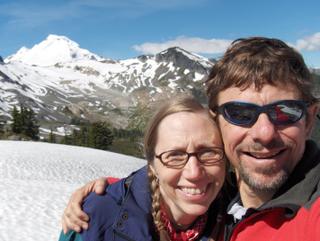Pro-Active or Re-Active?
I'm still digesting the meaning of the word 'emergent' as it refers to churches. It seems to be a word that, in typcial post-modern fashion, is squishy enough to encompass lots of definitions. I find it easier to articulate what it looks like than to offer definition, and what it looks like usually includes creative expressions of worship, a clear use of existing cultural structures (film, literature, art) as a means of expressing the good news of Christ, and a commitment to serving and being a blessing in the place where the church is located (I believe the word that describes this is missional, which by the way, is vital to our practice of what it means to be church in the 21st century).
This is all good, and right; welcome and needed changes in the American church. But, in spite of all this, I'm not one who uses the word 'emergent' very often, nor am I one who is ready to pronounce that the 'emergent' church(s) are the future. My hesitancy is rooted in the observation that the movement seems as much to be 'away' from traditional forms as it seems to be a movement towards new expressions of church life. One might argue that moving towards something new is necessarily also a movement away from something old, but I would challenge that assumption. Maybe instead of moving away from, I can move upwards by 'building upon' that which has come before. The problem with moving 'away from' is that I move away from the saints of older generations (thus making II Timothy 2:2 rather difficult). And I move away, not only from the sins of our faithers, but from much that has been good and right in historical Christianity. This is the difficulty with being re-active: we throw too much away.
Can I say something about this? (Of course I can. It's my blog). We've been down this road before. It's been 'weighed and found wanting' to take a Bible verse out of context. Two examples come to mind.
1. In the reformation, we moved away from both the excesses and doctrinal errors of medieval Catholicism, AND we moved away from the rich history of the Benedictines and Franciscans (to name but two important orders), classic ways of reading the Bible, and the disciplines of silence and meditation. We lost a lot by being re-active rather than pro-active, and only now are we recovering some of these elements in the 'reformation' churches.
2. In the days of the Jesus people (I was there - in California - in the 60's and 70's), our movement away from traditional forms not only brought the refreshing winds of authenticity and informality in our approach to God (our church choir in the 60's was called, "The Eternal Trip", and it was cool to come to evening service barefoot), but we also learned to mock hymns and liturgies. When I ran a ministry in the mountains years later, our summer Bible school included nights of singing where I'd sit at the piano and bang out 'praise music.' A girl who grew up with Jesus people parents said one night, "I'm tired of these insipid choruses. Is there a hymnal around here?" Suddenly, we're singing "And Can it Be" and many others, and these young people are stunned at the power of the words. "Where have these songs been all our lives?" they asked. Here's where: They were delegated to the dust bin of irrelevance by a generation that re-acted and threw too much away.
I'm not thinking of any particular church in this critique. But I need to raise the question and voice the concern. Is there a way to build on all that is right with the church, while reforming all that needs changing? Is there a way to 'add' a 2nd story to that which is solid in the foundation, so that we can take some of the ancient saints (both dead and living) along with us, continuing to learn from them? I hope so. I'm tired of seeing movements say, 'this time we're going to get it right' only to, years later go back and pick all that had been too easily discarded.




